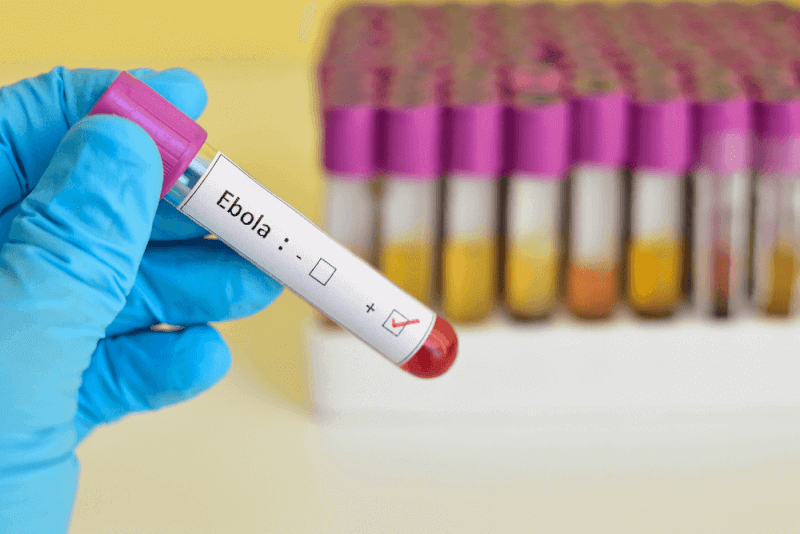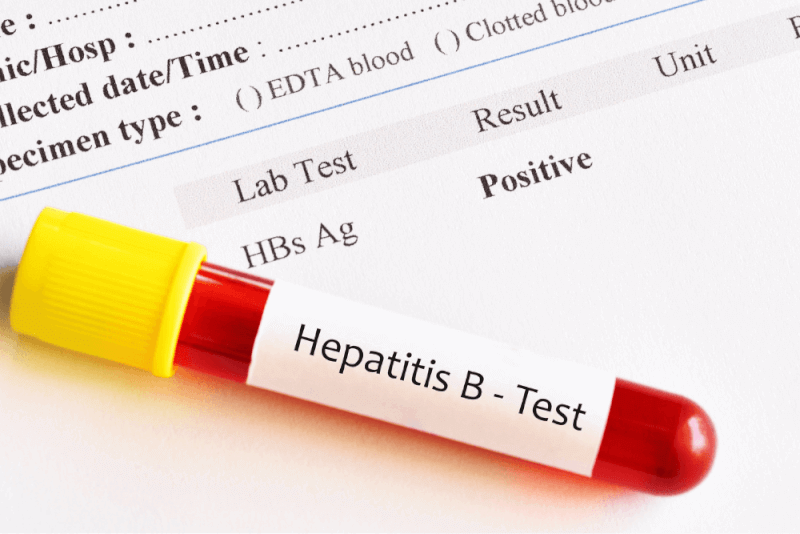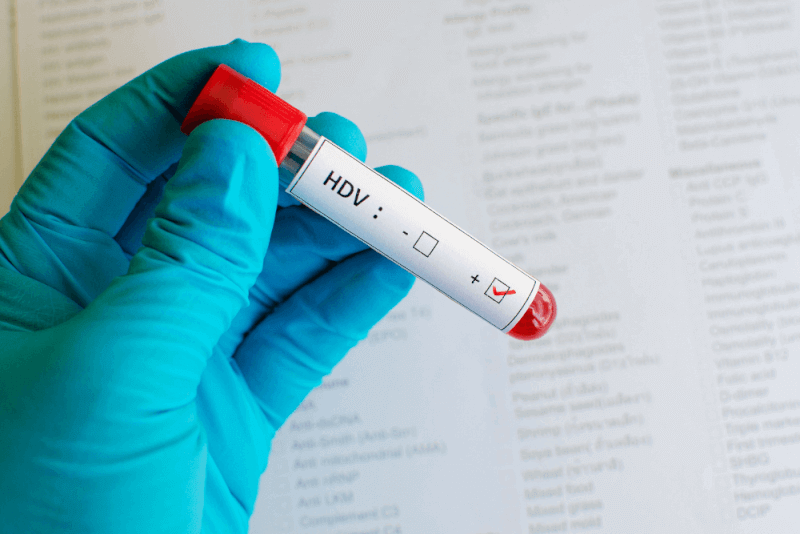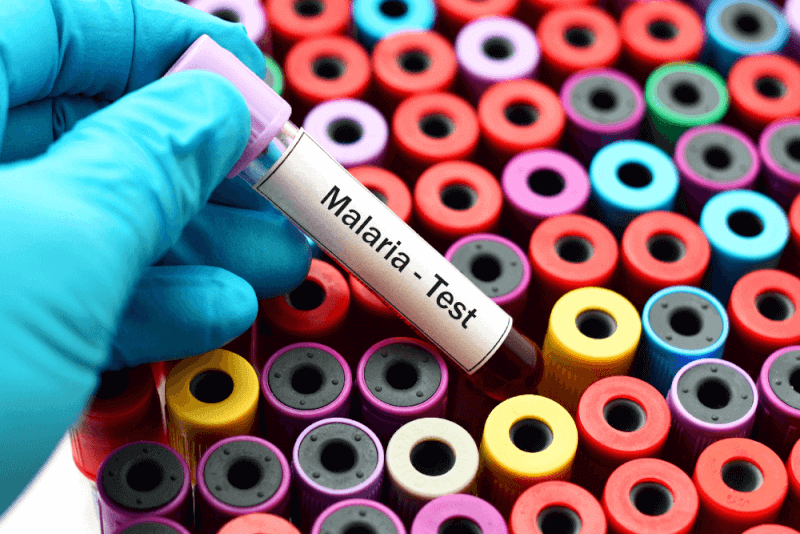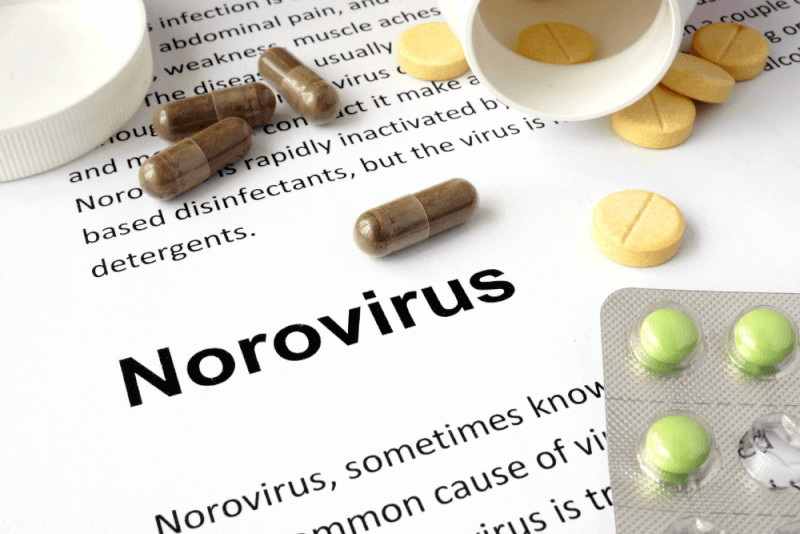30-Second Summary
- Early symptoms of Ebola are similar to the flu, progressing to severe vomiting, bleeding, and neurological issues.
- Symptoms in the early days appear similar to those of the flu.
- If returning from an area recently affected by an Ebola outbreak, monitoring for symptoms is required for 21 days.
- Diagnosing Ebola involves blood tests. Its symptoms can resemble those of yellow fever, malaria, and typhoid, making it difficult to diagnose.
What is Ebola?
Ebola is a type of viral hemorrhagic fever caused by several viruses in the genus Ebolavirus. It starts with flu-like symptoms but can progress to severe vomiting, bleeding, and neurological issues.
Ebola can be transmitted from bats, primates, and antelopes. Once transmitted to humans, it can spread from person to person and lead to outbreaks, particularly in Africa.
The disease caused by the Ebola virus, particularly the Zaire ebolavirus, is referred to as Ebola. It is the most common cause of Ebola outbreaks and fatalities. Researchers have tested vaccines and treatments only against the disease caused by the Ebola virus. Hence, no vaccine or treatment exists for other types.
Types of Ebola
The viruses that cause Ebola are named after the locations where they were first identified. The types of Ebola include:
- Zaire virus (EVD)
- Sudan ebolavirus (SVD)
- Tai Forest ebolavirus (TAFV)
- Bundibugyo ebolavirus (BDBV)
Causes of Ebola
Four types of viruses cause Ebola in humans. It starts from bats, primates, and antelopes in Western, Central, and Eastern African countries and spreads to humans. Each type causes similar symptoms and has a similar mode of transmission.
Symptoms of Ebola
The symptoms of Ebola include:
- Severe headaches
- Muscle pain
- Sore throat
- Rash or blood spots under the skin
- Fatigue and weakness
- Loss of appetite
- Vomiting
- Diarrhea
- Bleeding
- Bruising
- Red or bloody eyes
Symptoms initially resemble those of the flu. However, severe symptoms start to appear after a few days.
Diagnostic Criteria for Ebola
Diagnosing Ebola involves blood tests. Since its symptoms can resemble those of yellow fever, malaria, and typhoid, it can be difficult to diagnose. Tests vary depending on the likelihood of Ebola exposure. Therefore, any potential exposure to Ebola should be reported to a doctor.
Treatment Methods for Ebola
There are two monoclonal antibody treatments available for the Ebola virus disease. Monoclonal antibodies work like the body's natural antibodies, helping to fight the infection while the body mounts its own defense. These treatment options have only been tested for Zaire ebolavirus infections.
Additionally, treatments are applied to manage symptoms and prevent complications, aiming to keep the patient's condition stable. These treatments include:
- Intravenous fluids
- Treatments targeted at specific symptoms, such as pain management methods for pain control or balancing blood pressure
Transmission Routes of Ebola
The Ebola virus spreads through contact with the bodily fluids of infected humans and animals. These fluids include:
- Urine
- Feces
- Saliva
- Breast milk
- Vaginal fluids
The virus can also be contracted from contaminated surfaces, objects, or medical equipment. Furthermore, consuming the meat of infected animals can also cause transmission.
Even after recovery from Ebola, the virus can continue to reside and spread in the body, especially in the eyes, central nervous system, and semen.
How to Prevent Ebola?
People at high risk for Ebola can get vaccinated. Additionally, healthcare workers caring for patients must take certain precautions. These precautions include:
- Using protective equipment such as gloves and masks while caring for Ebola patients and avoiding contact with bodily fluids
- Using condoms or abstaining from sexual intercourse until it is proven that one is Ebola-free
- Avoiding contact with people who may have touched infected bodily fluids
- Avoiding contact with dead animals that could carry the Ebola virus or their bodily fluids
- Not consuming wild game meat
- If returning from an area recently affected by an Ebola outbreak, monitoring for symptoms is required for 21 days
- Isolating oneself if there is a possibility of having Ebola


